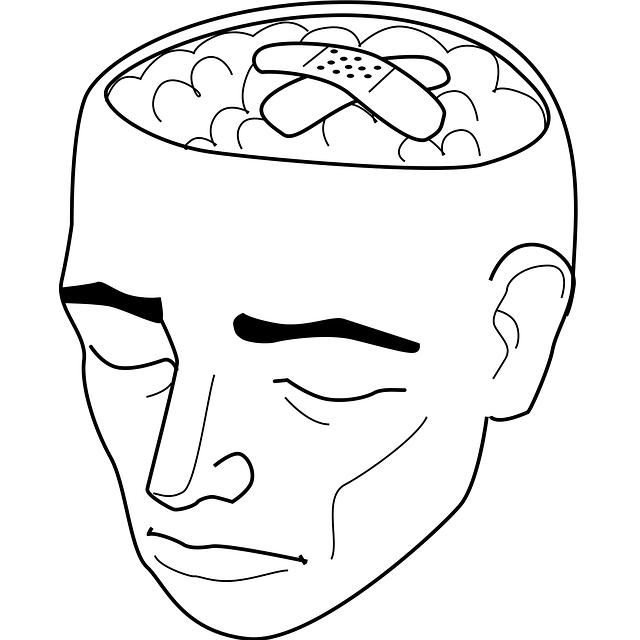Crisis intervention strategies are a vital component of mental health support tailored to young adults, addressing unique challenges like identity formation, academic pressures, and social dynamics. These interventions include evidence-based practices, structured programs, and multidisciplinary teams offering immediate relief and stabilization. Advocacy, policy analysis, and stigma reduction campaigns further create an environment conducive to effective crisis management, empowering individuals with coping strategies for both mental and physical health issues, particularly through therapy for young adults and bariatric evaluations.
In the world of mental health, crisis intervention plays a pivotal role in supporting young adults navigating emotional turmoil. This article delves into the essential practices and strategies that form the cornerstone of crisis support. We explore specific therapeutic approaches tailored for young adults, including cognitive-behavioral therapy and mindfulness practices. Additionally, we shed light on bariatric evaluations as a means to uncover co-occurring disorders often hidden beneath the surface. Remember that immediate assistance from professionals is crucial; this guide provides practical guidelines for both experts and support systems to implement effective crisis intervention strategies.
- Understanding Crisis Intervention: A Cornerstone of Mental Health Support
- – Define crisis intervention and its significance in young adult mental health.
- – Highlight the role of professionals in providing immediate assistance.
- Therapy for Young Adults: Navigating Emotional Turmoil
Understanding Crisis Intervention: A Cornerstone of Mental Health Support

Crisis intervention strategies are a cornerstone of mental health support, particularly for young adults facing acute distress or life-altering events. These targeted approaches aim to provide immediate relief and stabilize individuals during crises, with the ultimate goal of preventing further deterioration and fostering resilience. Therapy for young adults, often tailored to their unique needs and experiences, plays a vital role in this process. Bariatric evaluations, for instance, can help identify underlying physical health issues that may contribute to mental distress, ensuring comprehensive care.
Mental health policy analysis and advocacy, along with stigma reduction efforts, are essential components of fostering an environment conducive to effective crisis intervention. Compassion cultivation practices have also proven valuable in enhancing therapeutic outcomes by encouraging empathy, understanding, and a non-judgmental attitude. These strategies collectively contribute to the development of robust systems that support young adults in navigating their mental health challenges effectively.
– Define crisis intervention and its significance in young adult mental health.

Crisis intervention is a crucial component of mental health support tailored specifically to meet the unique needs of young adults. This approach recognizes that this developmental stage often comes with significant challenges, including identity formation, academic pressures, and navigating social dynamics, which can contribute to heightened vulnerability to mental health crises. The significance of crisis intervention lies in its ability to provide immediate and targeted assistance, helping young adults stabilize and develop coping strategies for the future.
For young adults considering bariatric evaluations or struggling with their mental health, a well-structured crisis intervention program can be life-changing. It involves a multidisciplinary team, including therapists, who employ evidence-based practices such as mindfulness meditation and emotional regulation techniques. Furthermore, risk assessments play a pivotal role in evaluating the severity of the crisis, enabling professionals to offer appropriate interventions, whether it’s individual therapy or group support.
– Highlight the role of professionals in providing immediate assistance.

In moments of crisis, professionals trained in mental health and crisis intervention play a pivotal role in providing immediate assistance to individuals in distress. These experts are equipped with the knowledge and skills to offer support, stability, and hope during challenging times. Whether it’s a young adult grappling with therapy for their mental illness or an individual considering bariatric evaluations due to body image issues, professionals act as guiding lights in navigating turbulent waters. They employ evidence-based practices tailored to each person’s unique needs, fostering a safe space for expression and healing.
The impact of these interventions extends beyond the immediate crisis. By implementing effective strategies, professionals contribute to Mental Illness Stigma Reduction Efforts and Mental Health Awareness campaigns. Through collaborative efforts, they design and facilitate Mental Health Education Programs that empower individuals with knowledge about their mental health, breaking down barriers and fostering a culture of care and understanding.
Therapy for Young Adults: Navigating Emotional Turmoil

For young adults grappling with emotional turmoil, tailored therapy becomes an essential lifeline. This phase of life often presents unique challenges, from academic pressures to identity formation and relationship dynamics. Therapy specifically designed for this demographic leverages their resilience and fosters a sense of self-awareness and empowerment. By addressing underlying issues through cognitive-behavioral techniques or other evidence-based methods, therapists help young adults develop coping mechanisms and build resilience. This proactive approach not only aids in burnout prevention but also equips them with tools to navigate future crises.
Integrating bariatric evaluations within this therapeutic framework can be transformative. For individuals struggling with body image issues or eating disorders, professional guidance offers a much-needed confidence boost. Healthcare providers play a pivotal role in implementing these interventions, ensuring that young adults receive holistic support. This includes not just addressing physical health but also nurturing psychological well-being. By combining therapy with targeted evaluations, healthcare professionals can effectively tailor burnout prevention strategies, ultimately contributing to the overall resilience and emotional stability of their young patients.
Crisis intervention plays a pivotal role in supporting young adults’ mental health, especially during periods of intense emotional turmoil. As discussed, professionals have a crucial duty to provide immediate assistance through strategies like active listening and validating experiences. Furthermore, tailored therapy approaches, such as those offered to young adults, can help them navigate complex emotions effectively. By combining crisis intervention with specialized therapy, including bariatric evaluations where needed, we empower individuals to overcome challenges and foster resilience in the face of adversity.














